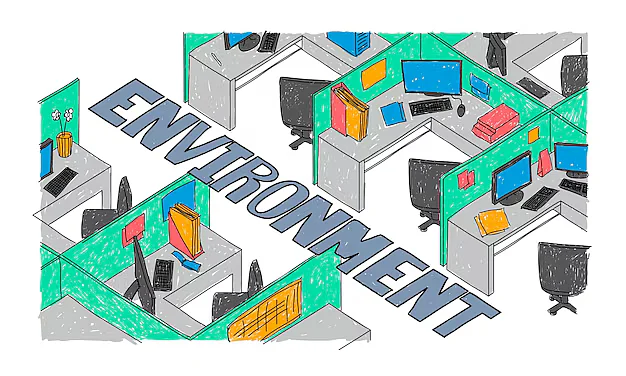With India’s climate action plans gaining momentum, a pack of clean-tech start-ups have taken off the blocks, from renewable energy to electric mobility. However, to stay up with the global frontrunners in the sustainability race, they would need to find a way around a major stumbling block: Capital. That’s no mean task, because, as compared to fin-tech or deep-tech, ventures in the clean-tech space struggle to attract funds due to various challenges, including large capital costs, growth concerns, regulatory uncertainty and scalability.
According to Bloomberg New Energy Finance’s 2025 Energy Transition Investment report, in 2024 energy transition reached $2.1 trillion of funding globally, 11% higher than the previous year. However, this statistic conceals a perturbing downtrend: The year-on-year investment growth through the preceding three years was two-and-a-half times higher, ranging between 24% and 29%. Notes Pratyush Thakur, Investment Director and Country Head of Blueleaf Energy: "Even this dwindling investment is flowing largely to established solutions, with China accounting for most of the growth. Meanwhile, the clean energy and tech sector in the rest of the world is either stagnating or slowing." Blueleaf is a Pan-Asian renewable energy platform that develops, finances and operates renewable energy and storage assets.
Climate tech companies raised a mere $50 billion in private and public equity in 2024, a 40% decline from 2023. It was the third consecutive year of contraction for the sector. Further, out of over 800 operational climate tech start-ups, only 25% have been able to secure venture capital funds. According to a recent study by IIMA Ventures and the Mitsubishi UFJ Financial Group, over the past decade clean-tech garnered about $3.6 billion whereas fin-tech companies attracted more than $19.3 billion.
Srikanth Sola, the founder of Devic Earth, a Bengaluru-based clean-tech company funded by Blue Ashva and Axilor, believes that it is relatively easy to secure funds at the seed stage. His start-up uses its proprietorial Pure Skies technology to reduce airborne pollutants over large areas by leveraging pulsed radio frequency. However, Sola notes that beyond this stage “investors look for companies, which generate good revenues and maintain top-notch quality in operations, management and products. This is hard to find. Fortunately, we could secure grants both from the Centre and the state of Karnataka, which helped in product development.”
Although ventures like Yulu, which pioneered electric bike-sharing services in India and Bambrew, a sustainable packaging start-up have made it to early-stage funding rounds, others haven’t been as fortunate. A noticeable gap exists in growth-stage funding, with less than 3% of start-ups going on to raise Series B or beyond. Vaibhav Anant, founder of Bambrew. says: “While we have got early-stage investors like Blume Ventures and Blue Ashva Capital, there are very few investors who will invest in Series B and Series C, which require much larger cheques.”
Moreover, policy support for the sector has waned, with incentives like feed-in tariffs and subsidies phased out and policies like carbon taxes not materialising. Says Thakur: "Policy uncertainty in a fast-changing technology environment creates a challenging investment context, which is not helped by the fact that many climate tech ventures are highly capital intensive." Investments, particularly in newly emerging sectors like clean-tech, need the comfort of consistent government policy, including predictability of subsidies and regulatory frameworks. Unfortunately, this is something funders can no longer bank upon as demonstrated by the political upheaval in just the first few weeks of Donald Trump’s presidency.
Funding Minefield
The struggle for funding stems from several factors including high upfront capital, long gestation periods and policy uncertainty. Venture capital (VC) funds remain largely hesitant to invest in clean-tech start-ups, citing high risks and not-so-easy returns.
Unlike software-driven start-ups, which are capital-light, clean-tech solutions like renewable energy or energy storage, need large investments. “Businesses in areas like carbon capture and electric transportation often require upwards of $25 million,” says Thakur. Also, because many of these are not mature technologies, investors justifiably fear “that they could easily be rendered obsolete by alternatives or shifting standards before they have scaled or generated decent returns”. In an ecosystem that depends crucially on valuations and scalability, the extended development cycles of capital intensive clean-tech projects can be a major dampener, especially when compounded by the risk of rapid technology obsolescence and policy flip-flops.
Clean-tech companies generally do not meet the fundamental VC expectation of quick returns, often within seven years. “Typically, private funders run a seven-year-fund, but sustainability-related start-ups require at least 10–15 years to show any sort of impact,” says Sathya Pramod, CEO of Kayess Square a Bengaluru-based firm specialising in mergers and acquisitions advisory and management consulting services.
Founder’s Dilemma
Climate tech start-ups like BluSmart, Zypp Electric, Ola Electric and Euler Motors, offering EV and battery storage services and innovators like Devic Earth, AirOK and Varaha, addressing air pollution, have burst upon the scene with no established playbooks to follow. As a result, awareness about such businesses is limited among customers and investors alike. Says Anant of Bambrew, “There is need for a lot of awareness in the space and for a lot of ‘patient’ capital.”
Adds Buyofuel founder Kishan Karunakaran: “The understanding of even clean-tech focused funds of the space, including the phygital model and field operations, is limited. Their expectations from the sector, therefore, often tend to be unrealistic if not over exuberant. With a number of funds still in the process of understanding the game, it will be a while before they become bullish.”
Not All is Gloom and Doom
Investor wariness is not uniform across the clean-tech sector with certain themes like energy storage solutions proving attractive to funders. Grid stabilisation, for example, has emerged as a significant market opportunity due to the proliferation of renewable networks worldwide. “The intermittency inherent to such networks has sparked substantial investments in various technologies from short-duration battery energy storage systems (BES) to longer-duration pumped hydro,” says Thakur.
India’s progress in the renewable energy space has stalled owing to factors like the pursuit of self-sufficiency in green energy equipment manufacturing, leading to tariff and non-tariff barriers. “These barriers have, in some cases, increased the cost of generation by at least 50% compared to initial forecasts,” Thakur asserts. Policy push and certainty, global collaboration and removal of trade barriers are some of the macro measures required to drive investment into the space, according to experts.
Instruments like green bonds have yet to reach their full potential due to the absence of "greenium"—a premium on environmentally beneficial investments, “The long-term environmental risk reduction offered by clean-tech has, therefore, not been adequately incentivised,” Thakur believes.
Large corporations, driven by their net-zero commitments have emerged as a significant source of funding for Indian clean-tech start-ups. “Corporation often have innovation arms, which seek new technologies to address pressing needs,” remarks Sola.
While corporate investments offer a promising stream of capital for the clean-tech sector, they need the air-cover of strengthened policy measures. It is time to look beyond the EV or clean energy sector. Sola believes, “More government-funded proof of concept studies would help the sector by exposing customers to clean-tech solutions and increasing their credibility. For hardware-based clean-tech companies, product development licensing needs improvement.” Citing China’s example, which has established an ecosystem for product development, testing, licensing and certification, he says: “In India, this is completely in the hands of private players, which makes it quite expensive.”
Looking ahead, with the right policies in place, India can expect more clean-tech focused investors to emerge. As the sector matures, the understanding of innovative technologies among investors will evolve, leading to realistic expectations regarding returns and scalability. As Pramod of Kayess Square says: “Adoption will take a while in India. We just need to wait out a little bit.” The question is: Does India have time on its side?































